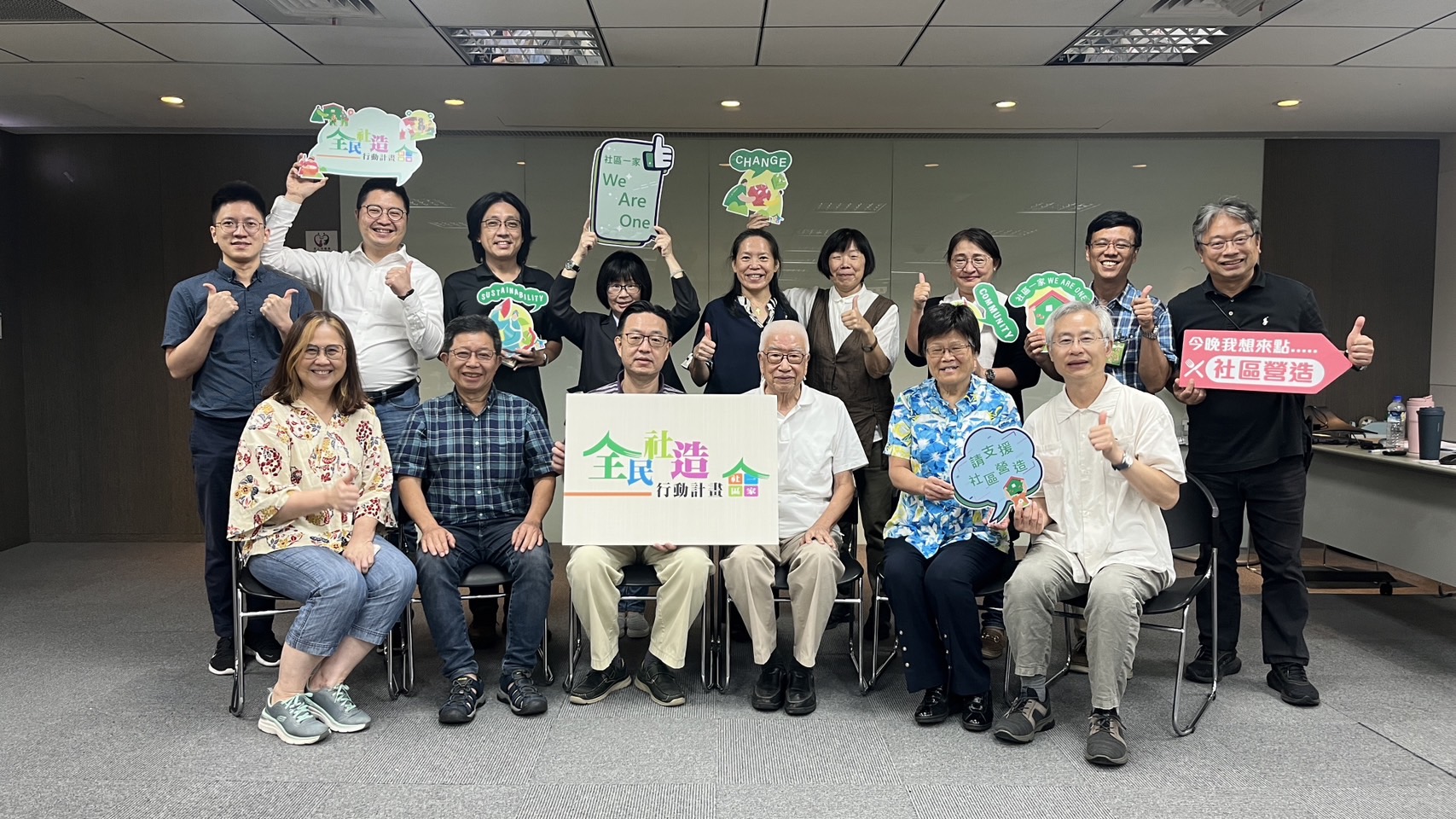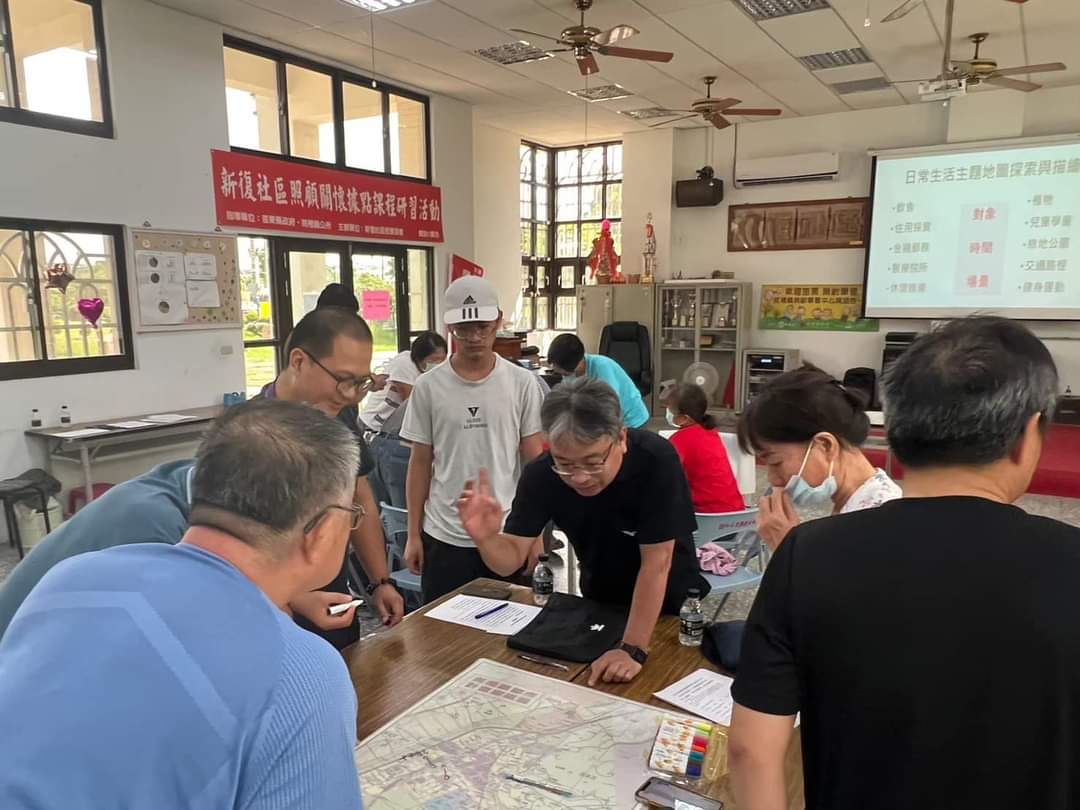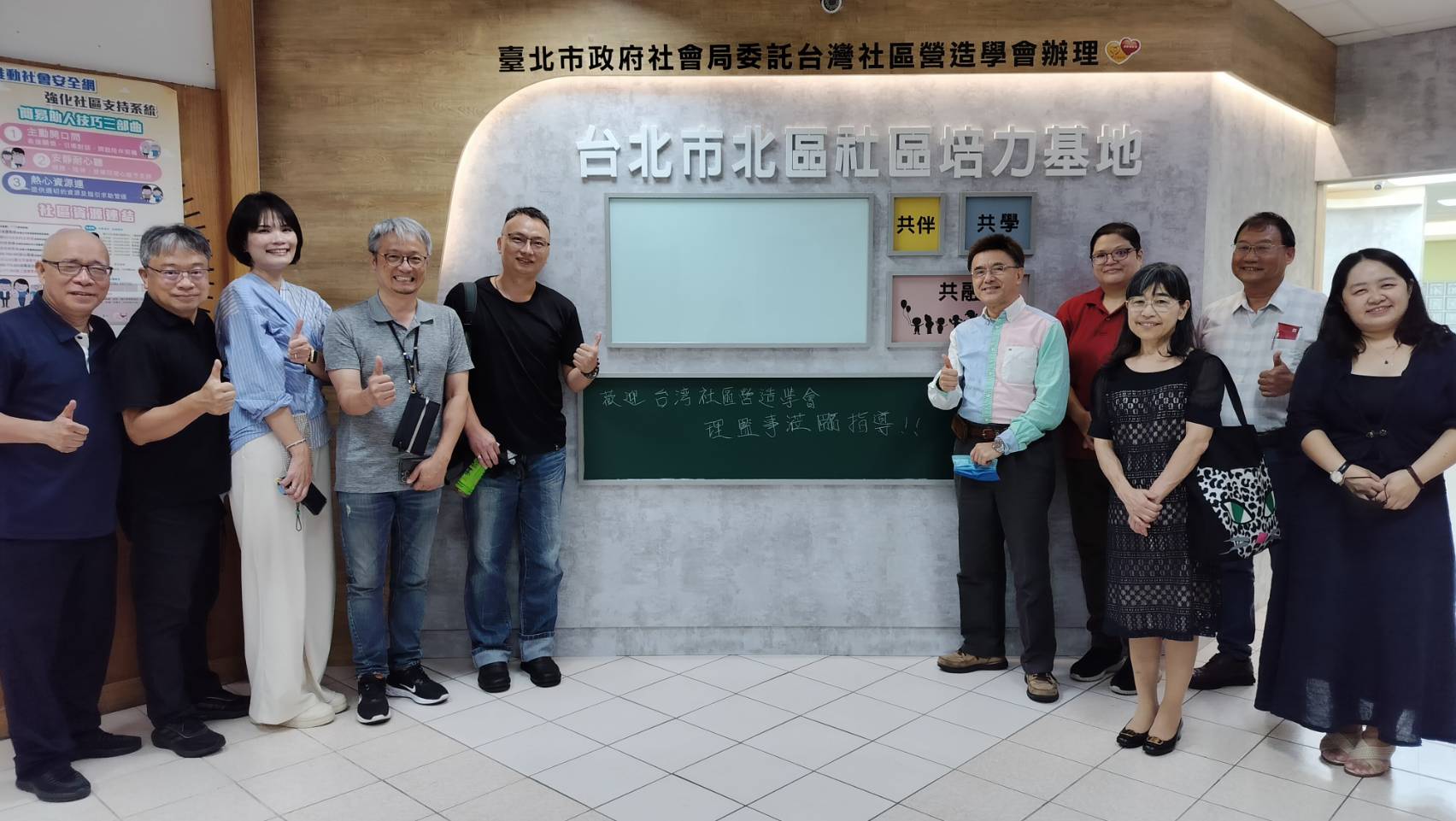 |
| |
   |
 |
Interview with Ben-Chaung Wang: Building New Interactive Balances Through Spaces and People, Individuals and Collectives, Piecing Together the Ideal Community Life |
| |
Ben-Chaung Wang is the current Chairman of the Taiwan Community Empowering Society, as well as a Professor in the Department of Architecture, National United University. He has long been dedicated to education and community empowerment through his profession of architecture, focusing on the interactive relations between people and living spaces. He frequently acts as a judge for various community empowerment projects. In recent years, he has endeavored to establish a better passing down mechanism for community development. In 2022, the Taiwan Community Empowering Society established Taiwan's first academic journal dealing with community development, Community Empowering Studies. In the same year, they organized the Forum of Asia-Pacific Empowering (FAPCE), sharing Taiwan's 30 years of community development experience with surrounding countries. This year, in addition to continuing to hold FAPCE, the Society plans to expand its Blueprint for Building a Township and County-Level Community Development Vision, as well as promote the establishment of the Community Empowerment and Revitalization Academy. It aims to integrate the social education system more efficiently, thereby opening more diverse possibilities for the cultivation mechanism of talent in community empowerment and revitalization.
From an Architect's Perspective: Focusing on the Mutual Influence Between Living Spaces and People
"I studied architectural design. Since my university years, I have focused particularly on how spaces and environments influence people and their lives. I am fascinated by environmental psychology and environment-behavior studies." Ben-Chaung Wang mentioned that he first became involved in community work as a student from 1984 to 1985. At that time, he led a civic engagement movement for Taipei's Yongkang Street and Keelung alongside his teacher, guiding people to reflect on their living environments.
After graduating, he went on to study in Austin, Texas, USA. There is a Theater District in the downtown of neighboring Houston. He noticed that the surrounding residents and stores had more intimate connections thanks to the performing arts, and was impressed by how such unique local industry enriched community culture and people's daily lives. This also deepened his interest in the interactions and influences between spatial features, human behavior, and psychological patterns. Back in Taiwan, Ben-Chaung Wang devoted himself to community empowerment actions starting in 1994. He witnessed the evolution of community development in Taiwan, from early on, when the Council for Cultural Affairs, Executive Yuan exclusively oversaw community development affairs, until later, when such work was gradually taken up by other government agencies. He served as a project leader of the 6-Star Plan, a collaboration between 13 government agencies. Ben-Chaung Wang has been a major actor in Taiwan's community empowerment-related policies and plans over the past three decades.
Observations on Methods of Community Empowerment
I asked Ben-Chaung Wang what kind of design methodologies for community empowerment he had observed and experienced through his participation in local projects or assistance in the We Are One project of Sinyi Realty Inc. in recent years. He answered, "There are no specific methods for community empowerment. You have to put your all into it." It has always been necessary that participants have a basic understanding of community development. The investment of resources from public institutions is also essential. In the beginning, people used to meet each other through world cafés and workshops. They performed historical research on daily life by collecting stories from locals, thereby enhancing their understanding of the demographics and power distribution in communities.

We Are One project decision-making meeting (Image courtesy of Ben-Chaung Wang)
Over the past three years, because of the COVID-19 pandemic, most community activities and courses have gone online. According to Ben-Chaung Wang, people have gained the freedom to choose whether or not they want to watch courses, communicate with others, and so forth. It would seem that more participation methods are available now, however, "compared to traditional face-to-face, on-site gatherings, their digital counterparts have indeed restricted more delicate emotional communication, such as through body language." He also agrees that one must have a handle on live situations when participating in community work. This allows for the observation of subtle feelings—whether residents express them openly or not—and understanding of unspoken words. Such approach helps build closer relationships, as face-to-face communication is fundamental for subsequent actions.
The Key to Promote Local Collaboration: Continuing to Act and Raising Attention on Community Demographics
It is imperative to have a core awareness with profound understanding of community characteristics, remain flexible to applying a variety of methods, and believe all public and private organizations in charge of local affairs will be willing to support the matter. Nevertheless, actions may not be performed easily, as the complexity of the population network varies across regions. Ben-Chaung Wang, a teacher at National United University in Miaoli County, has participated in community empowerment mentorship projects for 18 townships in Miaoli. He mentioned that he once helped a community in Sanyi to establish a community empowerment promotion committee. However, due to operational limitations and a short timeframe of only one to two months, a clear local consensus could not be reached. Eventually, the establishment of the committee became a mere formality. This lies in contrast with the integration project for old and new communities of Mei-Zhi-Cheng community and the artist village in Zhudong Township, Hsinchu County. Through participating in workshops every two weeks, Ben-Chaung Wang and the team spent 8 months building a good foundation for mutual agreement, thereby enabling the community to gradually establish the community empowerment promotion committee and independently draw up operation mechanisms. The Mei-Zhi-Cheng residents have taken over the operations for over 20 years now.

Yuanli Township community vision workshop (Image courtesy of Ben-Chaung Wang)
Role of Intermediaries Facilitating Professional Collaboration, Establishing a New Balance for Streets Through Mutual Reliance
The role of intermediaries in community empowerment work has long been a focus of Ben-Chaung Wang's research. "Residents of communities may not have equal relations and may not trust each other. Therefore, promoting community empowerment or local revitalization requires individual intermediaries or organizations, and even trusted local elders, students, and teachers, to serve as communication bridges between residents." Ben-Chaung Wang added that local non-profit organizations have proliferated since the lifting of martial law in Taiwan in 1987. In the early stages, they played an important role as intermediaries in local affairs, helping to establish trust systems between community residents and other parties, and acting as a balancing force to advance support work.
Sometimes, the personnel of intermediaries can provide the professional capabilities required by locals. For instance, the position of community planner has been promoted since 2000. Intermediary organizations with backgrounds in landscape and architectural design perform communication and assist in gathering resources, breathing new life into environments. Ben-Chaung Wang used the National Science and Technology Council's Green Sustainable Cities and Communities Experimental Plan conducted in several communities in Taoyuan City as an example. Project personnel and community planners from various sectors visited these communities, and during the process, personnel from horticulture departments of nearby large retailers also visited to exchange plant knowledge. The common goal of this wide array of professionals was to improve the living conditions in communities. Participating businesses could actually boost related sales, thereby actualizing new balanced relations through mutual reliance between streets. This process is based on the parties' expectations for a better future and their assistance in satisfying each other's needs, rather than solely relying on charitable voluntary services. It allows each community to actively engage in more sustainable cooperation.

Taipei City North District Empowerment Base trial operation (Image courtesy of Ben-Chaung Wang)
Inspiration of Urban Community Empowerment in Setagaya City, Tokyo, Japan: Harmonious Coexistence of Freedom and Shared Norms
Nearly 80% of Taiwan's population lives in urban areas, similar to Japan. Ben-Chaung Wang visited Setagaya City in Tokyo, Japan. In Setagaya City, urban parks have playgrounds that resemble woodlands, where there are no restrictions on entry or play and individuals are expected to take responsibility for their actions. "You can enjoy a great deal of freedom here, as long as you do not disturb others", said Ben-Chaung Wang. Residents develop norms for community living on their own initiative. You can feel the mutual respect between the local administration and professionals from the arrangement of public facilities such as street furniture. This paints a great picture of what it's like to live in an urban community where there exist awareness and norms of shared living between individuals and groups—from greeting each other to build a friendly connection, to establishing a tacit understanding of interactions, these slowly build what amounts to an ideal day-to-day life.
Cultivate Community Empowerment Literacy From Childhood
The aforementioned sums up Ben-Chaung Wang's expectations for Taiwan's urban community empowerment, that it can reach more well-rounded operations and for all people to understand that "living in an urban area means you have the freedom to decide not to participate, under the premise that you fulfill your responsibility to the community." Ben-Chaung Wang believes that such awareness can be cultivated through community empowerment literacy. Similar to civic literacy often talked about in modern societies, the related community experience activities have been included in the 2019 curriculum, enabling elementary and junior high school students to gain the insight that "the purpose of the division of labor is to cooperate" through learning spaces. Additionally, the goal is to imperceptibly develop mutual respect and empathy for others, as well as cultivate the knowledge for leading a fulfilling life from an early age: understanding individual responsibilities and boundaries through tiny instances of awareness and group actions can weave together the ideal relations for modern community life.
Ben-Chaung Wang Profile:
Wang has long been involved in Taiwan's community empowerment work, assisting government agencies at all levels to promote relevant policies and programs. Furthermore, he has devoted himself to frontline work, designing mechanisms and implementing operations for practical community empowerment training. At the same time, he serves as the convener of community empowerment taskforces at businesses and foundations, ever dedicated to building social welfare platforms.
(Interview edited by: Ling-Ying Huang)
Reviewed by: Ben-Chaung Wang
Authorization in this article:CC3.0 BY-NC-SA
|
|
|
 |






